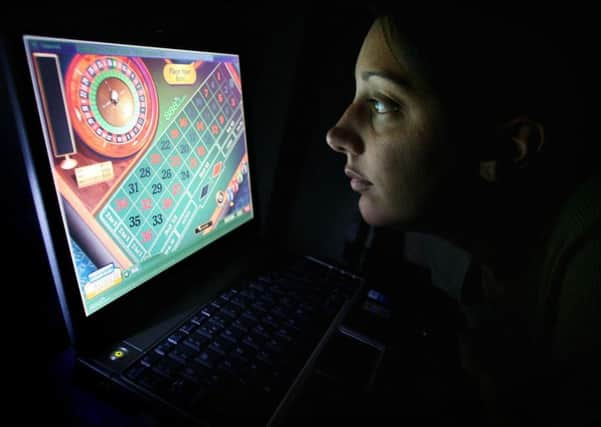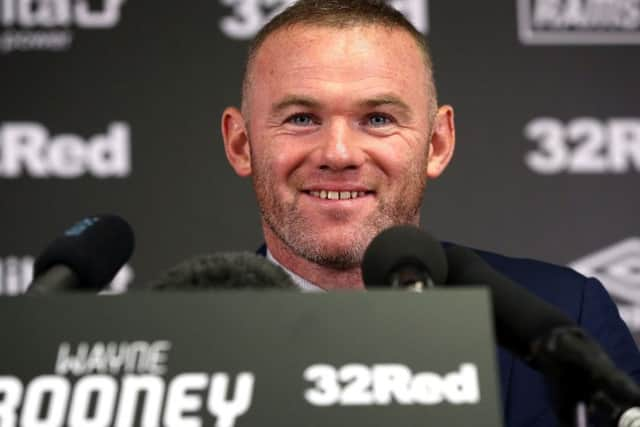Keep gaming free of addictive add-ons to avoid another gambling epidemic – Yorkshire campaigner Adam Bradford


My father spent time in prison after stealing money to fund his gambling addiction. His secret addiction spanned 30 years, culminating in his jail sentence after he racked up hundreds of thousands of pounds worth of debt.
Advertisement
Hide AdAdvertisement
Hide AdWhen I was a teenager, I would buy video games and that would be the end of my financial transaction. Nowadays, once you have bought a game, the spending does not stop there. Research from the Safer Online Gambling Group this week has shown that more than a third of young people are spending money on ‘in-app purchases’ or loot boxes, as they are commonly referred to.


These additions to games and apps offer players the chance of better footballers in a football game, or more coins and levels on an arcade game, for instance. On the face of it this might appear perfectly harmless, but our survey has shown that young people and their families are spending around £500-£600 each year on such games and expansion packs.
Advertisement
Hide AdAdvertisement
Hide AdThe video games industry are profusely denying any similarities between their new content and gambling, suggesting that the gambling industry is trying to blur the lines. What is actually happening is of genuine concern to parents who can ill afford their children being duped into extra purchases, in some cases from parents’ bank accounts.


One in 10 young people has accidentally spent money on micro transactions inside video games and apps and more than 95 per cent of young people under the age of 18 use these apps on tablets and smartphones.
It is a growing concern and an area where Britain is lagging behind.
Loot boxes were banned in Brussels and there are similar calls for such examples of luck-based gaming purchases to be banned in the States.
Advertisement
Hide AdAdvertisement
Hide AdWe already know that Britain is suffering under a gambling addiction epidemic, with 430,000 people addicted and a further two million at risk of addiction. The UK also has a sharply increasing number of child gambling addicts, 55,000 according to the latest survey from charity GambleAware.
It is shocking but not surprising to see gambling adverts making their way into the lives of young people, too.
Recently teen footballing idol Wayne Rooney was blasted for his sponsorship deal with betting giant 32Red after his new Derby County shirt was to be numbered after the firm. Sit this side by side with the influx of betting adverts around the sides of sports games and on social media and it is easy to see how youth culture is being piggybacked by the gambling industry to groom a new breed of customer – and addict.
Yesterday, we handed in the findings of our survey to 10 Downing Street in order to protect the next generation from this exploitative behaviour. It does not have to be this way – we can have a form of capitalism which has a conscience.
Advertisement
Hide AdAdvertisement
Hide AdYorkshire-based betting and gaming firm Sky Bet utilise technology for good, ensuring that those betting on their platform undergo robust ID checks and that their behaviour is tracked so potentially dangerous patterns of play do not turn into an addiction later on.
We want the Government and the gaming industry to hear that their exploitative practices need to change. Inserting casino wheels and gambling-like chips into games is not an added advantage to a game intended for those aged three-plus.
Allowing adverts for gambling into apps designed for children who can only just read and write and providing facilities for them to spend money on loot boxes and add ons with you in a persistent way we believe is predatory. Can we not switch off these addictive features by default so that games design is more responsible?
A prohibitionist approach is not one we are looking to take here, but I am concerned about the way games are beginning to mimic gambling. I am similarly unhappy at the way in which gambling is becoming normalised for young people. Betting and gaming should be fun, not something which is intrinsically linked to financial and social success.
Adam Bradford, from Sheffield, is co-founder of the Safer Online Gambling group and one of the Queen’s Young Leaders.